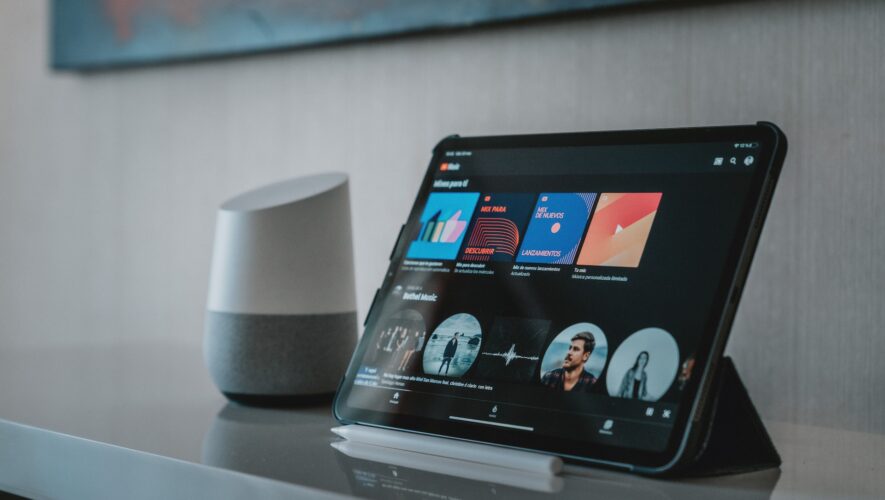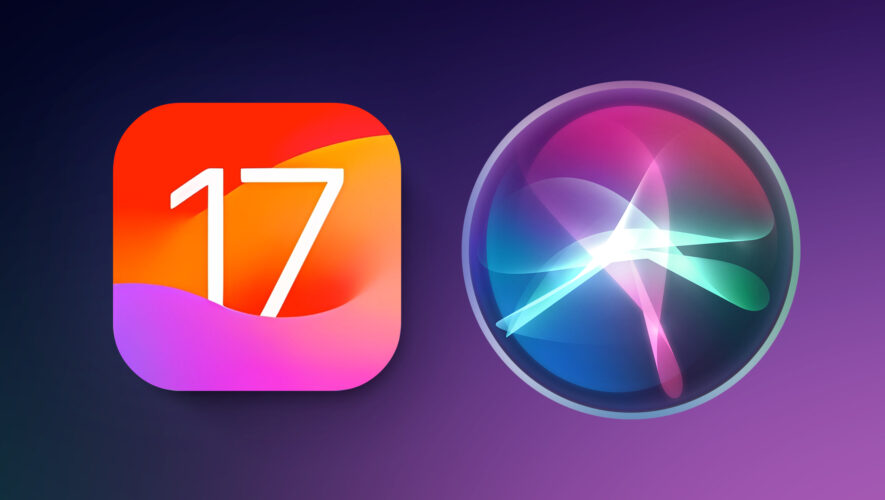As smart home products keep advancing, having a dependable app to manage your lights, smart plugs, and other gadgets becomes crucial. Most top-tier smart home product manufacturers provide a companion app, ensuring straightforward setup and essential controls. However, there are also several universal apps available that can integrate with these accessories, offering a centralized solution to control all your smart home devices.
Related Reading
When it comes to top-tier choices, you’ve got three main players: Google Home, Amazon Alexa, and Apple HomeKit. If you’re diving into creating a smart home, it’s essential to choose one of these platforms and ensure any accessories you purchase align with your chosen ecosystem. Google Home, driven by Google Assistant, stands out for its user-friendliness. However, its app hasn’t seen much change lately. But hold onto your hats, because Google is now unveiling a revamped and enhanced Google Home app.
What’s New With the Google Home app?
The latest update brings a total revamp to the Google Home app, which you can grab from either the iOS App Store or Google Play Store. For those with smart cameras, the app now showcases live previews of various feeds.
Additionally, the revamped lighting section presents a comprehensive view of all your synced smart lights, featuring a handy toggle for a one-tap power control. Plus, you can now manage individual lights directly from this overview, eliminating the need to sift through the app to locate a particular room.
New app design with a five-tab layout to give you your home, your way:
Favorites: Add devices and actions to this tab for quick access to the most important things in your home. This includes the ability to favorite your compatible cameras so you can view your live streams as soon as you launch the app. At the top of the tab, you will see a new Spaces view that helps you quickly view and control groups of similar devices, such as compatible lights, cameras, and thermostats.
Devices: Easily find all of your compatible devices and check their status.
Automations: Create and manage all your Household and Personal Routines in one place. With new starters, conditions and actions, you can now easily build and customize home automations that make your home safer, your life easier, and your day more fun.
Activity: Review what happened in and around your home.
Settings: Find and manage settings for all of your devices, services, and home members.
Refreshed camera and timeline views:
Vertical video history timeline: Quickly scrub through hours of video history or jump to live view.
Event views: Access a list of events and scrub to an exact moment. You can also see the video in landscape mode on your phone or tablet.
Quickly view live video on the home screen: See video from your Nest Cams and Doorbells all in one convenient place.
Media mini player: See what’s playing in your home with quick control access so you can adjust the volume or access the remote.
How to Reorganize and Customize the Google Home App
Tweaking the Google Home app lets users mold their smart home journey, shaping the app’s layout to their liking. This customization ensures smoother interactions with smart gadgets by placing often-used controls within easy reach.
From shuffling device tiles and crafting custom room clusters to establishing routines and shortcuts, these personal touches allow users to design an interface that mirrors their distinct habits and requirements. By tailoring the Google Home app, users boost not only their ease of use but also their overall pleasure in orchestrating their smart home universe.
Create a New Room
Setting up a new room within the Google Home app allows users to sort and arrange their smart gadgets according to where they’re placed or their purpose. By allocating devices to particular rooms, users can effortlessly oversee and operate several devices in a defined area, streamlining their smart home interactions and boosting ease of use.
Open the Google Home app on your phone.
Tap the Devices button in the bottom toolbar.
Locate and long-press any device listed in the app.
Tap the Settings icon in the top right corner.
Tap Room.
Scroll down to the Create new section.
Select one of the pre-created room suggestions.
You can also scroll to the bottom and tap Add a custom room…
Enter the name of the room.
Tap the Save button in the top right corner.
Of course, this isn’t something you’ll need to mess with unless you add an addition to your home. But more than likely, you’ll find yourself creating a new room in the Google Home app when you start adding devices and accessories to a room that didn’t already have any.
Move Devices to a Different Room
Moving a smart home device to a different room in the Google Home app allows users to update its location and ensure accurate device organization.
Open the Google Home app on your phone.
Locate and long-press any device listed in the app.
Tap the Settings icon in the top right corner.
Tap Room.
Select a different location under the My rooms section.
Tap the Save button in the top right corner.
By easily reassigning devices to the appropriate room, users can maintain a well-structured and intuitive layout within the app, making it more convenient to control and manage their smart devices according to their desired locations.
Add Favorites For Quick Access
A standout addition to the revamped Google Home app is the “Favorites” tab. It’s the initial screen you land on when you launch the app, ensuring swift access to your most-used smart home devices. And if you’ve got security cameras, you can slot them into your Favorites for a speedy peek whenever needed.
Open the Google Home app on your phone.
Tap the Favorites tab in the bottom toolbar.
At the bottom of the page, tap the Edit button
Tap the checkbox next to the devices that you want to favorite.
Once selected, tap the Save button in the bottom right corner.
The revamped Google Home app has streamlined the process of adjusting the device layout on the Favorites page. Simply hit the Reorder button located at the Favorites screen’s base. From there, just drag and position the devices to your preferred sequence.
Check the “Linked To You” Section
It’s possible you overlooked or missed assigning a smart home gadget to a particular room. While these devices are still accessible, they haven’t been designated to a room yet. No worries! There’s a special section just for such accessories. Here’s how you can relocate them to their rightful rooms:
Keeping your Google Home app tidy and well-arranged becomes a breeze with this feature. Additionally, you might stumble upon older devices that aren’t active anymore but still show up in the app. The “Linked to you” section is super handy, especially if you’re scratching your head over a newly added device that seems to have vanished. Just remember to check there!
How to Use Google Home Household Routines
Sharing your crafted automations with fellow household members is a nifty way to maximize the benefits of a Google Assistant-driven smart home. In the past, the Routines you set up were labeled “Personal”, meaning they were exclusive to just you within the Google Home app. But now, with the introduction of Household Routines, anyone you’ve added to your Google Home can access them.
Imagine having your home lights programmed to switch off at a set bedtime. Or setting them to illuminate a particular room the moment your phone connects to the home Wi-Fi. You could even line up a series of actions to convert your living space into a cinema ambiance, all triggered by activating Do Not Disturb on your phone.
Now that you’ve got your smart lights and other gadgets in place, let’s delve into the steps to craft and utilize Google Home Household Routines:
Open the Google Home app on your Android phone or iPhone.
In the bottom toolbar, tap Automations.
Tap the + Add button in the bottom right corner to create a new Household Routine.
From the Choose a type of Routine page, tap Household.
Tap the Pencil icon next to “Untitled” to change the name of your new Routine.
Select how the Routine will start by tapping the + Add starter button.
When I say to Google Assistant (Like “Hey Google, start…”)
At a specific time (Like 6:00 PM on weekdays)
At sunrise or sunset (Like 1 hr before sunrise)
When a device does something (Like when a light turns on)
Select which actions will be performed during the Routine by tapping the + Add action button.
Adjust Home Devices (Adjust lights, plugs, thermostats, and more)
Get info and reminders (Latest weather, your commute, reminders)
Communicate and announce (Make announcements, send and read texts)
Adjust Assistant Volume (Set volume when Routine is run)
Adjust Phone Settings (Mute ringer, turn on Do Not Disturb, and more)
Play and control media (Play your favorite music, news, and more)
Try adding your own (Experiment with custom actions)
Once complete, tap the Save button in the bottom right corner.
After you’ve finished setting everything up, you’ll be able to use Google Home Household Routines and access them right from the main Google Home page. Plus, if you have others in your home, you can add them and they will also be able to access and use these routines.
How to Add User to Google Home
Household Routines are pretty cool, but they only really shine if you have multiple people in the house. Otherwise, you could just go through and create Personal Routines instead. That being said, if you want to add a user to Google Home, here are the steps you’ll need to take:
Open the Google Home app on your phone.
In the bottom right corner of the toolbar, tap the Settings button.
Tap the + button at the top of the page under the Home section.
Enter the name or email address of the person that you want to add.
Tap the Next button.
Review the information about what’s shared with the person you’ll be inviting.
Tap the Next button.
Review the person’s access to the home.
Tap the Send button.
After you tap the Send button, the contact you selected should receive an email with instructions on how to join. They’ll need to download and install the Google Home app first but then can follow the on-screen instructions in order to join your Home.
How to Remove Devices in the Google Home App
Whether replacing a device with a new one, experiencing connectivity issues, or simply no longer using a particular device, removing it from the Google Home app ensures that only relevant and active devices are displayed, streamlining the management process. Additionally, removing devices can help resolve conflicts or troubleshoot problems that may arise when multiple devices are connected to the same app.
Open the Google Home app on your phone.
Locate and long-press the device that you want to remove.
In the top right corner, tap the Settings (Gear) icon.
At the bottom of the page, tap the Unlink device button.
When prompted, tap Remove to confirm.
By removing unnecessary devices, users can optimize their experience and focus on controlling the devices that are actively in use.
Conclusion
Navigating the revamped Google Home app on your iPhone or iPad has never been easier. With its intuitive design and enhanced features, managing your smart home devices is now a seamless experience.
Whether you’re a seasoned tech guru or just getting started with smart home integration, the Google Home app is your trusty companion. So, explore, experiment, and make your home smarter than ever. Happy automating with a touch of Google magic on your Apple device!
Andrew is a freelance writer based on the East Coast of the US.
He has written for a variety of sites over the years, including iMore, Android Central, Phandroid, and a few others. Now, he spends his days working for an HVAC company, while moonlighting as a freelance writer at night.
AppleToolBox



